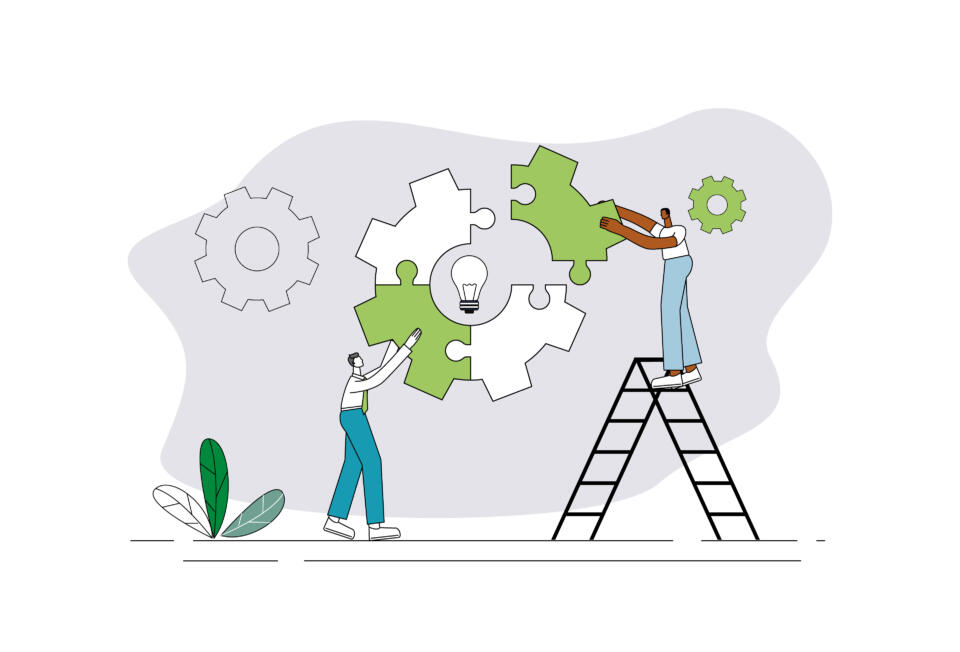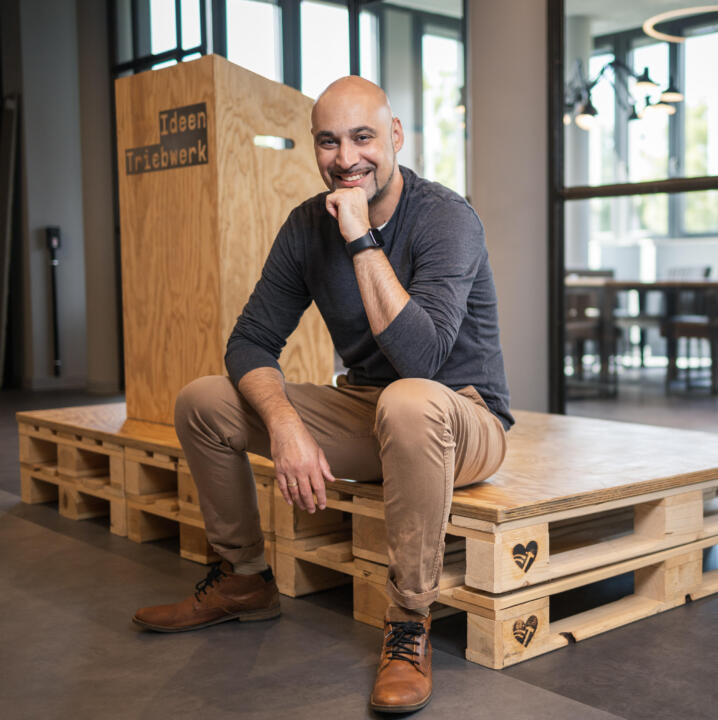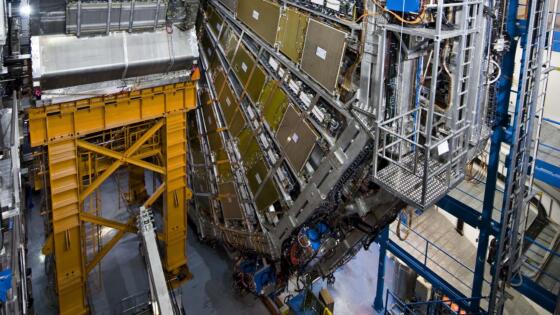
“The world of work is being upended”
Schaeffler is a company with a strong foundation of values based on four core values: excellence, sustainability, innovation and passion. You define engineering excellence as a decisive resilience factor for businesses. Why is excellence so important?
That requires clarity about the starting base. Driven by technological as well as environmental and social developments, practically all sectors of the economy need to transform themselves, and manufacturing companies are bombarded with a wide variety of engineering challenges in that regard. They need to interlink new, partly disruptive technologies with existing know-how both in the realm of development and manufacturing as well as in terms of the product itself. To do so, development departments in volatile times like ours need to develop nearly prophetic skills to predict what the markets are going to expect in the future. Plus, there are the criteria that we’ve also referred to as excellent engineering – in other words a reliable, available and secure system as well as product quality in general. According to this mélange, it’s necessary to find increasingly interdisciplinary approaches to product solutions, not least with respect to the growing importance of the circular economy. Harmonizing all that means reimagining engineering excellence once again. Those are incredibly huge challenges for product developers, and only companies that master them are going to develop the resilience it takes to prevail in the marketplace.
"It’s necessary to find increasingly interdisciplinary approaches to product solutions."
Please specify these challenges.
Digitalization and artificial intelligence (AI), in particular, are going to lead to intelligent, connected systems based on the close interaction between many professional disciplines. That shapes virtually all forward-thinking fields such as mobility, energy supply and the circular economy. Creating such complex systems calls for a new approach based on systems theory and systems engineering for which neither industry nor universities are adequately prepared: in both sectors, the research and development activities are structured as matrix organizations according to professional disciplines and departments. There’s a lack of holistic methods and thinking, but that’s exactly what it takes to get a circular product off the ground, from the selection of materials to potential upgrade models to consideration of quality-assured refurbishing. The latter, for instance, is a model commonly practiced with smartphones. All that must be considered as early as in the initial design.
Can you name an example of a successful company from your practical experience?
A nice example of a product development showing the kind of potential that can be tapped when using a slightly different approach is machine manufacturer GEA – one of the world’s largest systems suppliers for the food, beverage and pharmaceutical industries. For a company that mainly processes steel, delivery times, costs and the material’s deep carbon footprint pose a steadily growing problem. The following is what our research scientists recently did together with the company: they included genetic, in other words continually evolving AI algorithms, in the product development process. To provide a rough idea of how that works: genetic algorithms conduct experiments, trying to find several new ways in product development. That produced some good and not-so-good solutions that employees of the company filtered out. That’s where the human factor comes into play because that’s the moment when the system learns. Ultimately, the suggestions generated by the genetic algorithms and selected with the help of the employees resulted in GEA using 30 percent less steel in manufacturing its product and significantly improving its carbon footprint.
"In the future engineering excellence will hardly exist or not even exist at all without the help of AI."
You mentioned algorithms. How does artificial intelligence impact on engineering excellence?
I’m convinced that in the future engineering excellence will hardly exist or not even exist at all without the help of AI because AI is useful in more ways than one. On the one hand, we can feed AI with the expertise of specialists who are about to retire and conserve this knowledge before it’s lost. But it’s also important to externalize such knowledge in order to retain interdisciplinary capabilities even in the face of skills shortage. Skills shortage is another issue anyway with which AI can help. Many industrial nations simply have problems finding young professionals, and the situation is dramatic in some cases. When there’s a shortage of developers AI must ease the burden on existing capacities. For instance, as in the case of GEA, by developing a variety of approaches to solutions from which experts filter out the best ones and continue developing them. We need to manage introducing AI into the engineering process for real, and develop and deploy dedicated AI systems for that purpose.
Why are you so convinced of that?
Because AI has the potential to upend the world of work the way we know it. In information technology, it’s common practice for students to run software development code through ChatGPT for analysis. It’s safe to assume that in the future software developers are hardly going to document on code anymore because systems like ChatGPT can do that just as well retrospectively. The situation with failure analyses is similar. But and now for the big but, we do not have such AI solutions yet when we’re talking about truly complex systems. We need to work on that. If you allow me to speak on behalf of the German perspective: not least for reasons of resilience, it would be nice for such a system to be developed in Germany first instead of in the United States or in China.
The term circular economy has been mentioned several times. What impact does it have on engineering excellence?
Traditionally, only the first two stages of a product, i.e., development and operation, used to be looked at. Now the focus is increasingly placed on upstream questions such as: what raw materials can be used, how resource consumption can be reduced, and on downstream aspects such as recycling and the previously mentioned refurbishing. Digitalization provides us with new access to the product because we can generate data about various lifecycle phases. Manufacturers now have very detailed knowledge about how the product was made, how it was delivered, who bought it, how the consumer used it, what defects occurred, and so on and so forth. I can draw an awesome number of conclusions from that data volume. For instance, whether, as a manufacturer, I’d rather run a product upgrade or launch a new product generation. In the past, that always involved a lot of gut feeling, and now engineering excellence is moving into the process as well.
Can you name an example?
Household appliance manufacturer Miele is heading in the right direction in terms of sustainability and digitalization. Let’s take dishwashers for example. In the past, the promise to the customer would probably have been that the appliance would last for 20 years. That’s no longer being done because it’s safe to assume that within those 20 years appliances with far higher efficiency are going to be developed. Instead, Miele provides its customers with software solutions enabling them to reduce the energy consumption during the operational stage of the appliance. Adopting such business models represents an enormous change in the entire development of a company.
But broken still means disposal on a scrapyard?
No, it’s also about refurbishing. Here’s an example: if the appliance is broken after ten years it will be replaced by a new, more efficient one for an additional charge; the old appliance will be taken back, provided with a newer level of technology, and resold as a refurbished appliance. However, designing appliances for repair friendliness is another hallmark of engineering excellence and a step away from the throwaway society.
In a development process, not only production and product have to be optimised, but also the stations before and afterwards.
You encourage companies to develop complex systems professionally and to achieve fast sustainable market success. How is “fast” compatible with “excellence?”
Fast in that context means agile development – a buzzword that’s been around for a long time in software engineering. Agility only means being able to respond to new situations. That’s a basic virtue of resilience that’s not at all in opposition to the meaning of excellence.
You differentiate between technological and socio-technological systems. What do you mean by socio-technological?
Socio-technological has two perspectives. One of them is when a system must act within an environment, meaning that there are users, that there’s legislation – in other words a social environment in which the system must be accepted. In the past, there was hardly any reason to expect public expressions of outrage; the situation is different today. Take electric cars for example: Generations Y and Z are not buying electric cars weighing several tons from luxury manufacturers. That’s not what the future of electric mobility can look like. That clientele of buyers may still exist now, but it’s dying out. That’s what I mean by including a look at the social environment in product development. The second perspective is the development process itself in which humans still play a crucial role despite all AI systems. Employees must accept new methods in the development process, they must be receptive to continuing education, but they must also find their work to be fun.
Can the innovation-related challenges only be mastered by close collaboration between policymakers, business leaders and academia?
Yes definitely. Policymakers need to create the framework for development, innovation and manufacturing locations to remain attractive. Let me provide another example: North America is currently far in front when it comes to companies selecting locations because the political situation there is halfway stable and energy costs are low. Plus, government subsidies in the United States are about six to seven times higher than, say, in Germany. But that doesn’t mean that other nations now need to ramp up their subsidies. They need to pursue other pathways to keep the corporate headquarters of the large manufacturing companies from moving away. Because that’s where most of the intellectual property, i.e., engineering excellence, resides.
"Academia must inspire enthusiasm for technology in young talent. Professors should not sift out students with exaggerated math requirements right in the first semester."
What is the crucial role of academia?
It must inspire enthusiasm for technology in young talent. Professors should not sift out students with exaggerated math requirements right in the first semester. It’s possible that we’re losing technology talent in that step. And when demographic change is so tough that a company can no longer recruit talent, it’s practically forced to look for a new location. We often make the mistake of wanting to educate only top-class research scientists but instead need to think about breadth as well. I don’t know if someone like Steve Jobs would have successfully completed a computer science program in Germany. Tech-based academic programs must not be reserved to elites. Universities are challenged to reimagine education in that respect.
"Engineering provides us with the most effective leverage for achieving sustainable business success."
Advanced Systems Engineering (ASE) that you’ve codeveloped is intended to guide a new perspective in planning, development and operation of technical systems. Why and how?
ASE can best be explained by subdividing the strategy into three conceptual pairs. The first is Advanced Systems. Future systems are going to change massively. They’re going to be autonomous, intelligent and highly connected. The current state is that we’re developing a product and subsequently a service. That approach can no longer be successful. The systems themselves are urging us to develop a new concept of engineering in which the product and digital extensions are fused. That takes us to the second conceptual pair, Systems Engineering. It is focused on model-based system optimization across the entire lifecycle using a digital twin. We cannot pursue development using the methods of the past 20 years. We have outstanding specialists for fluid power, for mechanical engineering, for circuit technology, but we frequently lack interdisciplinarity in development methodology. The third part describes Advanced Engineering, which needs to be reimagined. It’s essentially about two components. On the one hand, new technology such as AI or digital twins must be used. But equally important are soft subjects such as agility, creativity and social skills. Development must be fun. Development cannot only mean being an acting unit that migrates a requirements specification into a product specification. Algorithms will be able to do that equally well someday. This model of the responsibly self-determined, creative developer must find its way into the mindsets of corporate leaders because engineering provides us with the most effective leverage for achieving sustainable business success.
What does ASE mean for the labor market?
We need to learn that we’ve already got a great deal of experience in the labor market. We need to engage those engineers in the journey toward the future. Older colleagues can be inspired by teaming them up with young enthusiastic co-workers. But the question is, how to get ahold of them! The argument that you should study something to do with engineering and you’ll be sure to find a job no longer holds water. We need to show what opportunities engineering creates, how engineering can be shaped, what can be achieved with engineering. For instance, you can study environmental engineering and work on how the control of smart grids can be improved in order to reduce CO₂ emissions by 20 to 30 percent. Without engineered solutions, we’re not going to manage living together peacefully and sustainably on Earth with what will soon be twelve billion people.
The expert

Professor Roman Dumitrescu earned his PhD in systems engineering in 2010. From 2011 to 2015, he was Head of the Product Development Department at the Fraunhofer Institute for Mechatronic Systems Design IEM. Since 2015, he has been one of the three directors at the institute and continues to be responsible for the Product Development unit.


